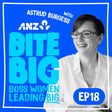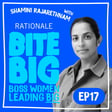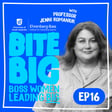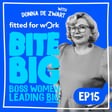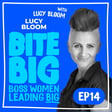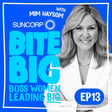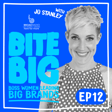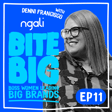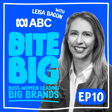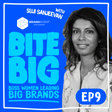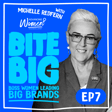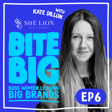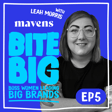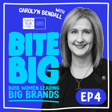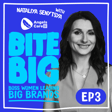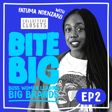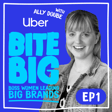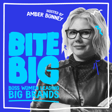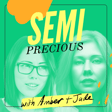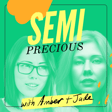
Amber Bites Big with Lisa Cox - Author, speaker and inclusive communications consultant
In Episode 2 of Season 2, Amber Bonney Bites Big with guest co-host Lisa Cox - one of Australia's leading authors, TEDx speakers and inclusive communications consultant & disability advocates.
Inspired by Amber's own Mantra, "bite big and chew like hell", in this episode we talk about how Lisa's early career has influenced her efforts in championing inclusion for people with disabilities, particularly in media, since a brain haemorrhage triggered a series of events that left her with both visual and invisible disabilities herself.
Amber and Lisa discuss how her two mantra's, "Worse things happen", and "Start with the small changes to create a tidal wave" have helped give her perspective on a daily basis, whilst the change we need won't happen overnight, the small changes combined by herself and others can create a huge ripple affect and the need to celebrate these small wins.
Lisa shares insight on how she shifted from survival after her series of events left with overwhelming challenges and pivoted into an advocacy role using disadvantage for change, changing her own inner stereotypes of disability to helping change industry and the way disability was being represented. Listen to one of Australia’s most inspirational marketing services professionals who has broken the mould of what our industry looks like, and has demonstrated through data-led evidence how embracing diversity makes good business sense.
Bite Big has donated $500 to the chosen charity Youngcare a not-for-profit that is revolutionising the way young people with high care disability live to give them freedom, dignity and choice.
If you would like to know more about our host Amber Bonney her business The Edison Agency or co-host Lisa Cox you can connect and follow these boss women via their socials links below!
Links:
Lisa's LinkedIn
Lisa's Instagram
Lisa's Website
Lisa's TedXTalk
Unstereotype Alliance
The Valuable 500
Diversity Australia
The Edison Agency's LinkedIn
The Edison Agency's Instagram
Amber's LinkedIn
Amber's Instagram
Credits
Main Host: Amber Bonney
Producer: Niki Beeston
Sound Engineer: Jack Gooden, Gasworks Brisbane
Post Production : 17th Street Audio
